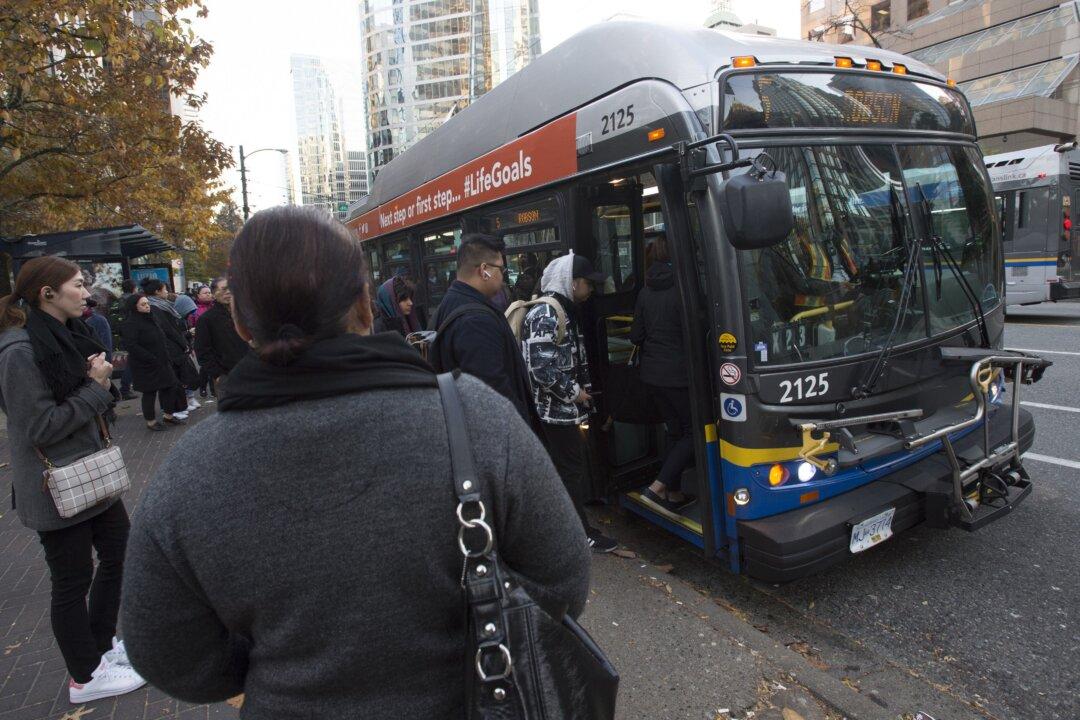British Columbia is injecting nearly $500 million into the Metro Vancouver transit system to save it from what officials say is a feared “death spiral” sparked in part by the COVID-19 pandemic.
Premier David Eby said Wednesday that the $479 million in provincial funding for TransLink will keep fares affordable, prevent service cuts and enable future transit expansion plans to continue.





